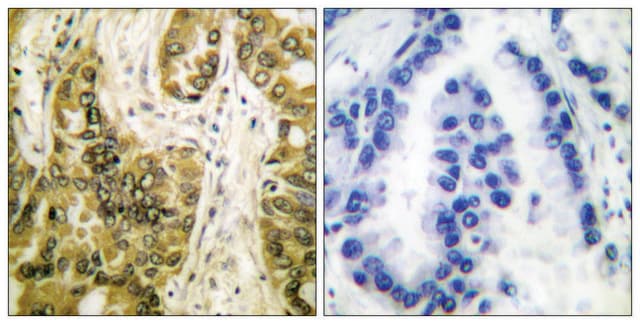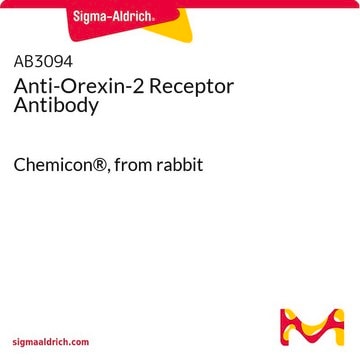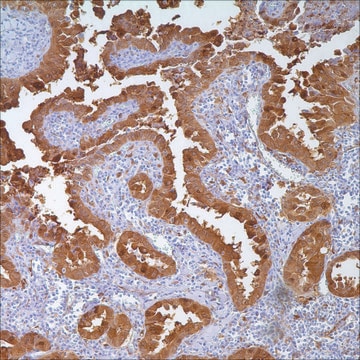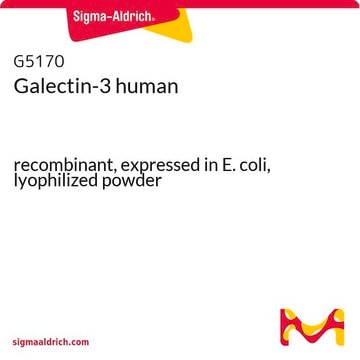MABT51
Anti-Galectin-3 Antibody, clone M3/38
clone M3/38, from rat
Synonym(s):
lectin, galactoside-binding, soluble, 3, Mac-2 antigen, Carbohydrate-binding protein 35, galectin-3, Galactose-specific lectin 3, Laminin-binding protein, Lectin L-29, IgE-binding protein, Galactoside-binding protein
About This Item
Recommended Products
biological source
rat
Quality Level
antibody form
purified antibody
antibody product type
primary antibodies
clone
M3/38, monoclonal
species reactivity
mouse, human
technique(s)
immunocytochemistry: suitable
immunohistochemistry: suitable
immunoprecipitation (IP): suitable
western blot: suitable
isotype
IgG2aκ
NCBI accession no.
UniProt accession no.
shipped in
wet ice
target post-translational modification
unmodified
Gene Information
human ... LGALS3(3958)
General description
Immunogen
Application
Immunoprecipitation Analysis: A previous lot was used by an independent laboratory in IP. (Springer, T., et al. (1981). THE JOURNAL OF BIOLOGICACHLE MISTRY. 256(8):3833-3839.)
Immunohistochemistry Analysis: A previous lot was used by an independent laboratory in IH. (Gasbarri, A., et al. (1999). Journal of Clinical Oncology. 17(11):3494-3502.)
Immunocytochemistry Analysis: A previous lot was used by an independent laboratory in IC. (Gasbarri, A., et al. (1999). Journal of Clinical Oncology. 17(11):3494-3502.)
Quality
Western Blot Analysis: 1:50,000 dilution of this antibody detected Galectin-3 in 10 µg of HeLa cell lysate.
Target description
Physical form
Other Notes
Not finding the right product?
Try our Product Selector Tool.
Storage Class Code
12 - Non Combustible Liquids
WGK
WGK 1
Flash Point(F)
Not applicable
Flash Point(C)
Not applicable
Certificates of Analysis (COA)
Search for Certificates of Analysis (COA) by entering the products Lot/Batch Number. Lot and Batch Numbers can be found on a product’s label following the words ‘Lot’ or ‘Batch’.
Already Own This Product?
Find documentation for the products that you have recently purchased in the Document Library.
Our team of scientists has experience in all areas of research including Life Science, Material Science, Chemical Synthesis, Chromatography, Analytical and many others.
Contact Technical Service








